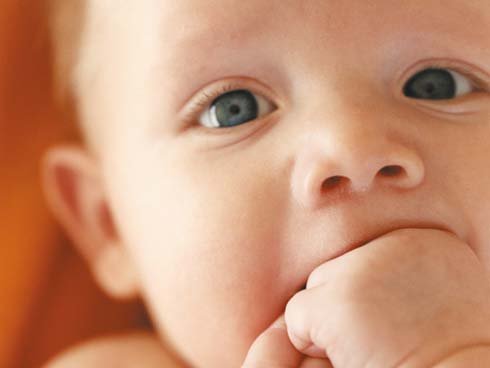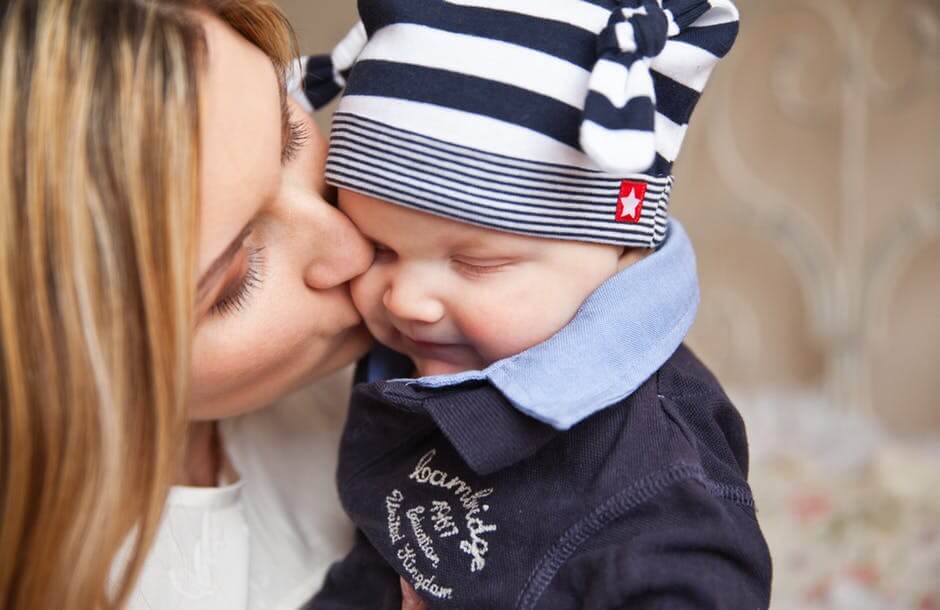Tips to Calm a Crying Baby

Crying is something that’s very common in babies. A baby’s cry helps us know if he needs something, if he’s in pain or is uncomfortable. Many first-time parents tend to worry because they believe it could mean something bad. But there’s no cause for alarm. All babies cry. One must simply learn to calm a crying baby.
It’s true that these situations often create a great deal of stress and exhaustion for parents. Sometimes, they can even create a sense of anguish because you don’t understand exactly why your baby is crying, nor how to calm him down. This can be worrisome at the beginning. Fortunately, good parenting comes with practice, and with time, you can learn how to decode your baby’s signs.
Some of the causes for crying are very simple: hunger, tiredness, or pain. In these cases, there are numerous useful tips you can put into practice to help calm and relax your baby.
What can I do to calm my baby’s crying?
Feed your baby
Once you know how to identify what signals your baby uses to say that he’s hungry, you can be one step ahead of him. Before crying, babies tend to make certain gestures to indicate they need to eat. Some of these include smacking their lips together or putting their hands in their mouth.
Relieve your baby’s gassiness
Babies swallow air when they are nursing or bottle feeding, which in turn produces gas. This makes babies very uncomfortable, so you should try to help your baby burp. To do so, mom or dad should place the baby over their shoulder and gently pat the baby’s back until she burps.
Change your baby’s diaper
Your baby may be uncomfortable because his diaper is dirty. Make sure you check your baby’s diaper regularly to see if it needs changing, as this many be the cause of your baby’s crying. Fortunately, this is something you can solve very quickly.
Give your baby something to suckle
Give your baby a pacifier or something similar that he can’t swallow. Suckling really helps your baby relax, as it creates a very pleasing sensation for your baby. You can also let him suckle on your breast or on one of your fingers.

Massage
The back and forth motions of a gentle massage are very relaxing for babies. Furthermore, they help them to get rid of gases. As mentioned above, this is very relieving. You can also gently rock your baby, as some babies need to be in constant movement.
Let someone else hold the baby
Of course, as parents, we want to be the ones who are able to calm our babies, but sometimes we need help. Allowing someone else to calm your baby down will be relaxing for you and your baby. Babies sense when their parents are tense or nervous. Continuous crying can be very irritating. When we’re irritated, this affects how we treat others.
Mother’s warmth
For most babies, being in direct contact with mother’s skin is soothing. When your baby lies on your chest and hears your heart beating, this gives him a sense of protection.
Be careful with your baby’s clothing
Some babies are very sensitive to the feel of their clothing. There may be some small tag or certain fabrics that rub on your baby and hurt him. To solve this, you just need to make sure that your baby’s clothing is soft and contains no bothersome fabrics. Also, remember that it’s very important to cut off all tags.
Lastly, make sure your baby’s shoes aren’t too tight, as this can cut off his circulation.

Watch your baby’s teeth
There’s a good chance your baby is teething, especially if he’s between 3 and 7 months old. If he’s biting or chewing on things, drooling a lot, or not wanting to eat, this may be due to teething.
The only way to relieve this natural process is to let him chew on something. It’s best to give your baby something cold (not frozen) to chew on, as this will bring down the swelling of the gums.
See a doctor
It’s common for babies to become colicky, especially after eating. If your baby is irritable and crying excessively, this may be the reason. If your child is crying uncontrollably, then perhaps the best thing you can do is ask for the help of a specialist. It might not be anything serious, but it’s best to be sure. That way, parents can be at ease and avoid making wrong assumptions.
All cited sources were thoroughly reviewed by our team to ensure their quality, reliability, currency, and validity. The bibliography of this article was considered reliable and of academic or scientific accuracy.
- de Cock, E. S., Henrichs, J., Rijk, C. H., & van Bakel, H. J. (2015). Baby please stop crying: An experimental approach to infant crying, affect, and expected parenting self-efficacy. Journal of Reproductive and Infant Psychology, 33(4), 414-425. https://www.tandfonline.com/doi/abs/10.1080/02646838.2015.1024212
- Long, T., & Johnson, M. (2001). Living and coping with excessive infantile crying. Journal of advanced nursing, 34(2), 155-162. https://onlinelibrary.wiley.com/doi/abs/10.1046/j.1365-2648.2001.01740.x
- Jones, S. (1992). Crying baby, sleepless nights. Houghton Mifflin Harcourt.
- Illingworth, R. S. (1955). Crying in infants and children. British medical journal, 1(4905), 75. https://www.ncbi.nlm.nih.gov/pmc/articles/PMC2060770/
- Hiscock, H., & Jordan, B. (2004). 1. Problem crying in infancy. Medical journal of Australia, 181(9), 507-512. https://onlinelibrary.wiley.com/doi/abs/10.5694/j.1326-5377.2004.tb06414.x
This text is provided for informational purposes only and does not replace consultation with a professional. If in doubt, consult your specialist.



